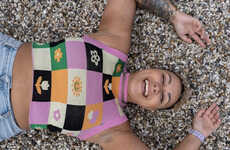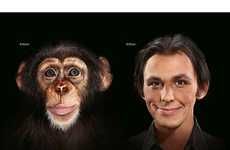
Autism Speaks Leverages Interactive Technology to Spread its Message
Christopher DeLuca — May 9, 2011 — Marketing
References: theadbuzz & bestadsontv
BBDO's work for Autism Speaks and the Ad Council strikes at recognizing the symptoms of an autistic child for new parents. BBDO designed their project around the fact that one of the major symptoms of autism in children is a refusal to make eye contact. The exciting display that BBDO created for Autism Speaks places the viewer in front of a child that won't meet their gaze.
The project for Autism Speaks is meant to make people realize how truly frustrating the experience is. The motion sensor above the screen with the girl follows the viewer's head movements and a message is relayed back so that the little girl always avoids making eye contact.
This project for Autism Speaks is innovative in its ability to convey a very specific experience with the use of state-of-the-art technology.
The project for Autism Speaks is meant to make people realize how truly frustrating the experience is. The motion sensor above the screen with the girl follows the viewer's head movements and a message is relayed back so that the little girl always avoids making eye contact.
This project for Autism Speaks is innovative in its ability to convey a very specific experience with the use of state-of-the-art technology.
Trend Themes
1. Interactive Autism Displays - The combination of interactive technology and empathy can help raise awareness about autism and facilitate better understanding of the condition.
2. Motion Sensor Technology for Healthcare - Applying motion sensor technology to healthcare can enable interactive displays and simulations that offer a more immersive experience for patients and caregivers.
3. Personalized Health Interventions - Using advanced technology to customize health interventions can improve health outcomes, enhance engagement, and reduce healthcare costs.
Industry Implications
1. Healthcare - Interactive displays and simulations, powered by advanced technologies, can facilitate a more personalized and engaging healthcare experience for patients and caregivers.
2. Technology - Innovative technologies, such as motion sensors, can be applied to a wide range of industries, including healthcare, education, and entertainment, to create more immersive and interactive experiences.
3. Education - By using interactive technologies, such as motion sensors, educators and trainers can create more engaging and effective training materials that enhance learning and retention.
5
Score
Popularity
Activity
Freshness















